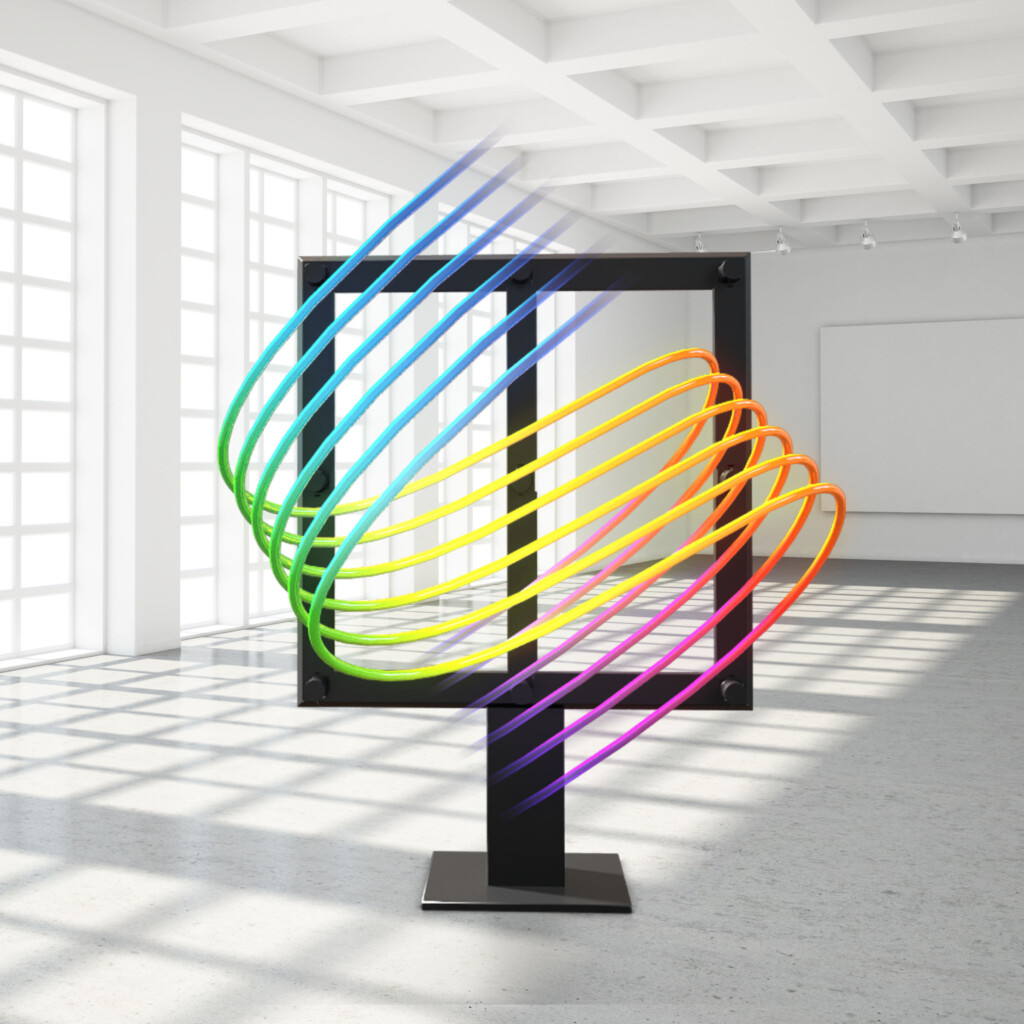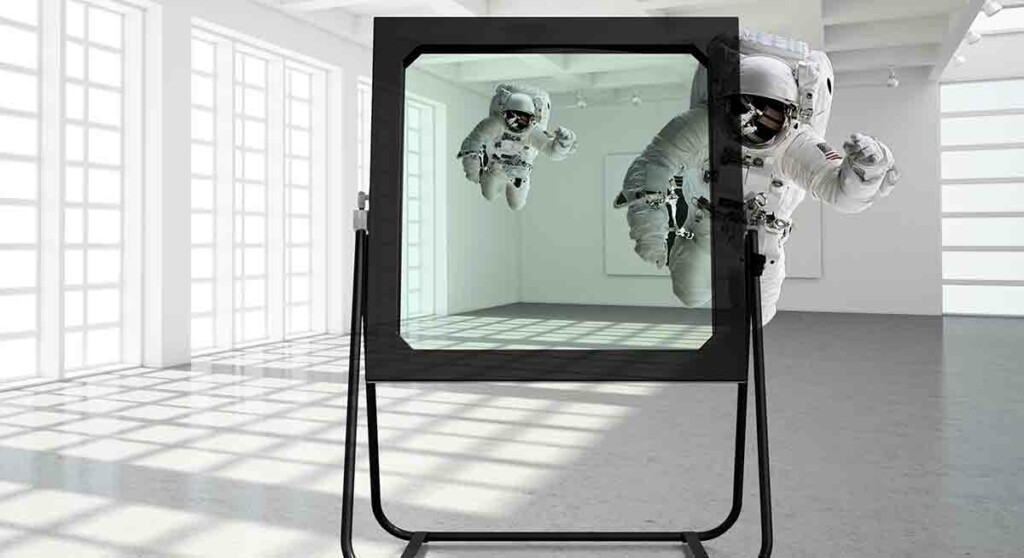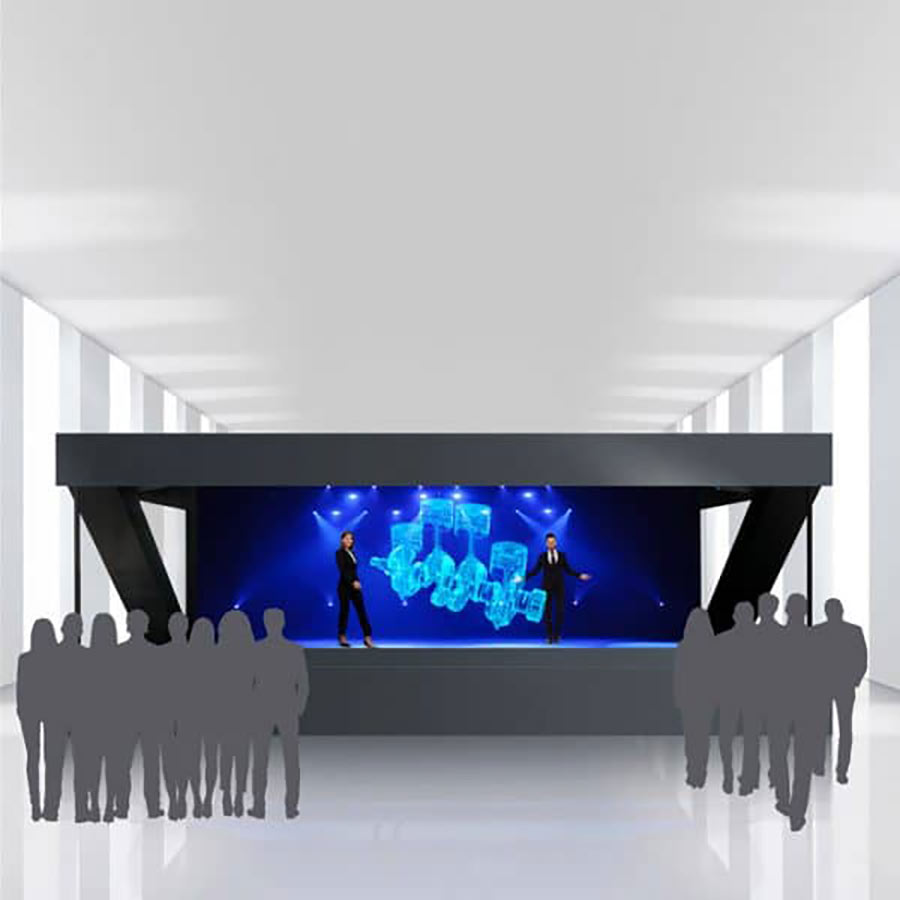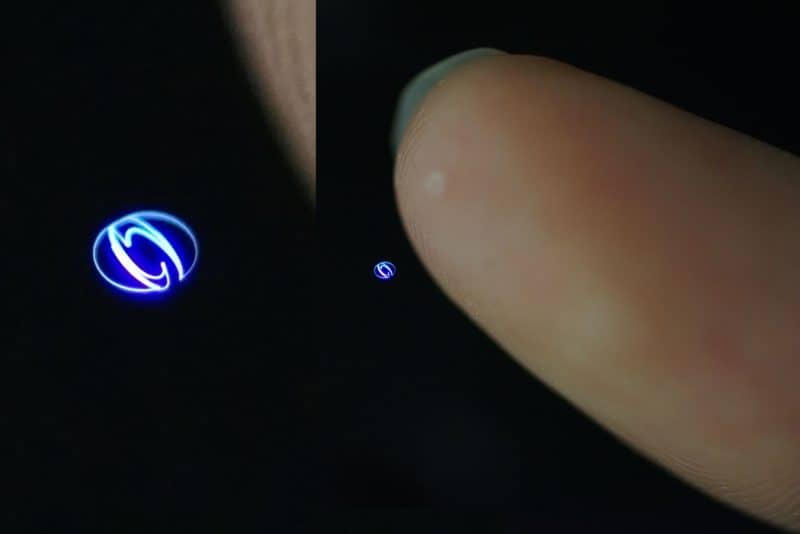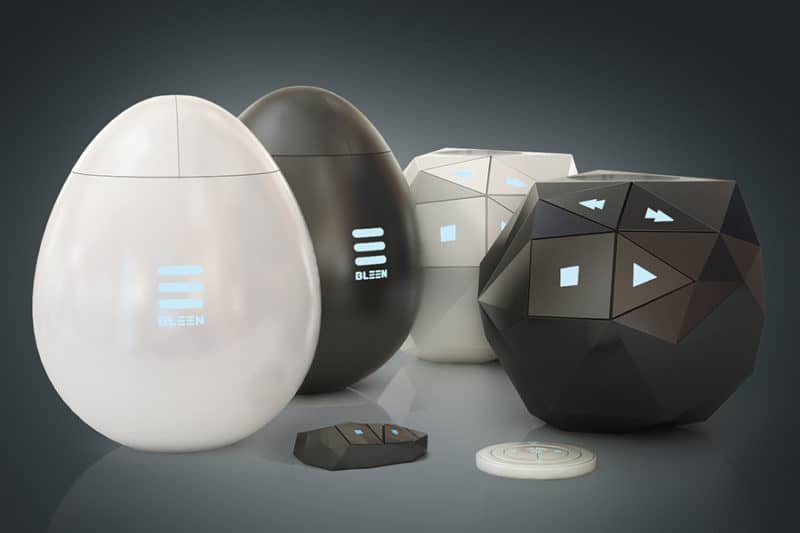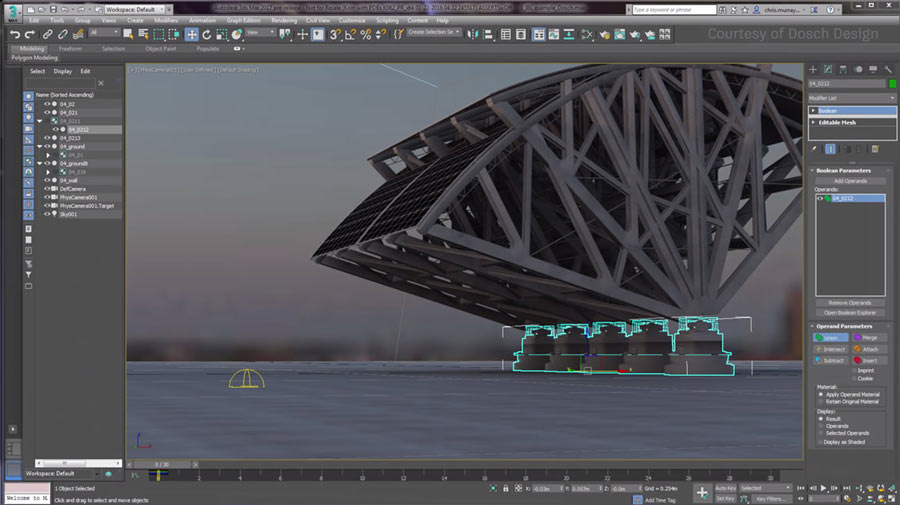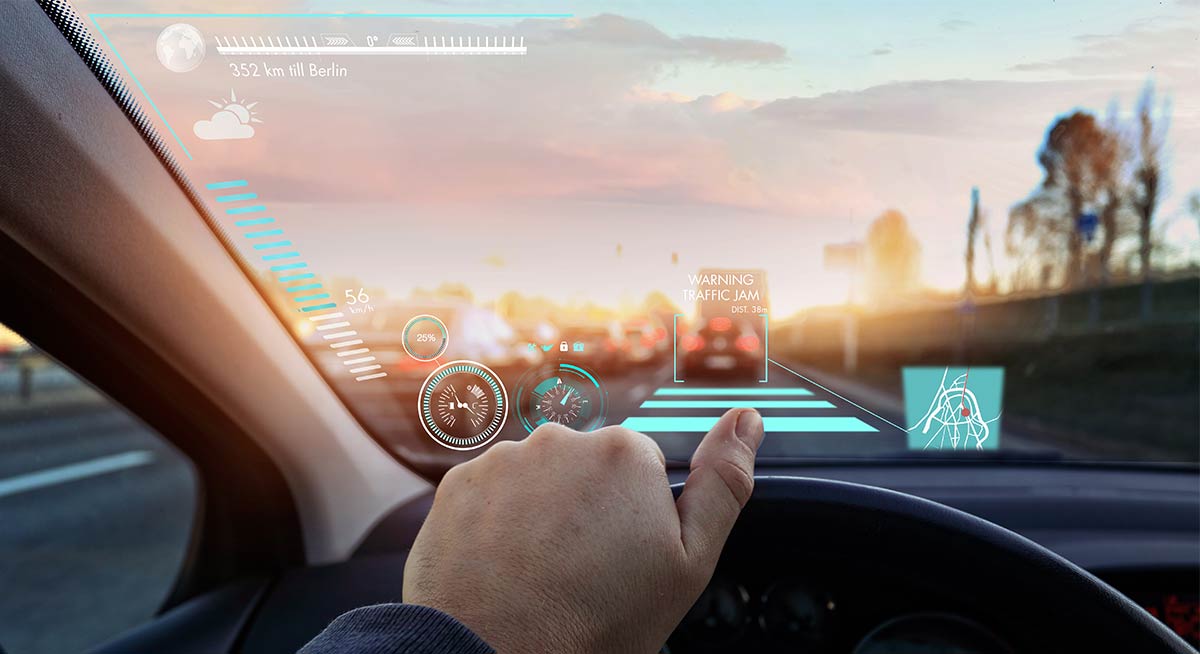Overview
Whale in the gym hologram – real or fake?
Overview
Whale in the gym hologram – real or fake?
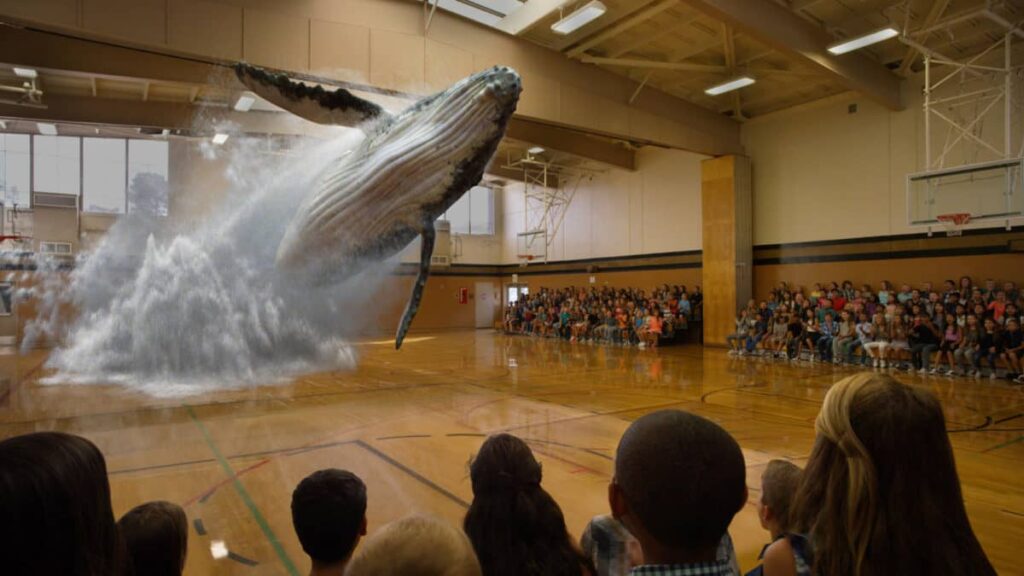
Image: engadget.com
The whale in the gym.
A spectacular video.
Millions of clicks on YouTube.
Let’s start from the beginning…
Students chat in the stands of the gymnasium, the atmosphere seems relaxed. You might think it was an ordinary gym.
A scene seemingly taken with a teenager’s cell phone camera, a small excerpt from everyday life.
But suddenly – a whale in the gym!
The pupils begin to applaud in amazement.
The water splashes, the whale jumps up from the gym floor and dives in again.
Reflexively, the students turn away to avoid being caught by the holographic waves. After 10 seconds, the spectacular video is already over.
How can that be?
Are such holograms possible?
Well then – let’s bring some light into the darkness.
You are currently viewing a placeholder content from YouTube. To access the actual content, click the button below. Please note that doing so will share data with third-party providers.
More InformationIs the whale hologram real?
To make a long story short: NO
The video is merely a promotional video to show what will be possible in the future with Magic Leap ‘s technology in the field of holography.
The fact that none of the students can be seen with augmented reality glasses or other aids creates the illusion that everyone can see the whale hologram freely in the air.
But is that really possible?
No. The video with the whale is only Magic Leap’s vision and therefore only fiction.
The marketing hype created is huge thanks to the video of the gym.
In August 2018, the company started to implement this vision. With specially developed augmented reality glasses – the ‘Magic Leap One’.
This also makes it possible to experience the whale virtually and holographically .
Allerdings sieht dieser noch nicht wie auf dem Demo Video gezeigt aus.
So bleibt in etwa der Überraschungsmoment eines aus dem Boden springenden Hologramm Wals aus.
How does the technology behind the whale work?
There is a lot of secrecy surrounding the technology used by Magic Leap.
However, the Magic Leap is basically a pair of augmented reality glasses – similar to the Hololense from Microsoft, for example.
It is known that transparent wafers and digital light projections are used to create the illusion of a virtual object in space for the wearer of the Magic Leap One.
According to Magic Leap CEO Jeff Abovitz, the next generations of Magic Leap One will focus on reducing the size of the AR glasses and optimizing the light field signal.
Who are the makers behind the video?
The start-up Magic Leap is behind the “whale in the gym” video and not, as initially assumed, a student with a cell phone camera. They work with holographic technology and special glasses (the so-called Magic Leap One) to merge the real environment with three-dimensional, virtual objects – in other words, mixed reality or augmented reality.
However, prospective buyers will have to be patient.
The Magic Leap One, which includes a small portable computer and a controller in addition to the glasses, is currently only available to developers at a price of around 2300 dollars.
Anyone who is already looking for a hologram that can be experienced by many viewers without glasses can find all available holographic systems here.
The recording is therefore a far cry from an amateur video.
The company is one of the most expensive start-ups in the world.
To date, around 2.3 billion euros in venture capital has flowed into the unicorn (= start-ups with a market value of more than 1 billion euros).
Investors include big names such as Google and Alibaba.
>
Which holograms really already exist today?
How can a similar effect to the whale be achieved in the gym?
From our point of view, there are 5 alternatives to holographic systems.
These allow objects – such as the whale – to appear to float freely in space.
>
With all 5 systems, the viewer does not need glasses but can see the hologram directly.
All the systems are mainly used as eye-catchers at trade fairs, events or functions.
However, museums and industrial companies from various sectors also use holographic systems to explain complex topics in a way that is easy to understand.
Very striking and innovative.
AND, above all, without any additional AR glasses.
An example of a hologram wall
Create a long-distance effect. Fascinate customers with something new. Present your own products in an innovative way. Hologram fans were developed precisely for this purpose. The holograms are visible from a great distance and lead the customer or visitor directly to your space or exhibition stand. Learn more here
You are currently viewing a placeholder content from YouTube. To access the actual content, click the button below. Please note that doing so will share data with third-party providers.
More InformationHologram pyramids enable holography from different perspectives
View holography from three sides and have real objects surrounded by holographic overlays – the Dreamoc hologram projectors give your product a very special appearance. Learn more here
You are currently viewing a placeholder content from YouTube. To access the actual content, click the button below. Please note that doing so will share data with third-party providers.
More InformationOther relevant articles
Touchable hologram – Fairy Lights holograms with the Femto Laser
Touchable hologram - Fairy Lights holograms with the Femto Laser
What is the difference between bump map, normal map, normal parallax map and displacement map?
How do bump, Normal-, parallax Normal and displacement map?
Bleen Holo projector.Everything you need to know summarized.
What is the Bleen Holo projector?
Whale in the gym hologram – real or fake?
Whale in the gym hologram - real or fake?
3D animation software – the top 5 (2 are free programs)
3D animation software - the top 5 (2 are free
All about head-up displays
All about head-up displays. A head-up display (HUD) can


